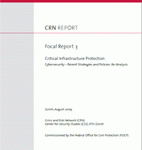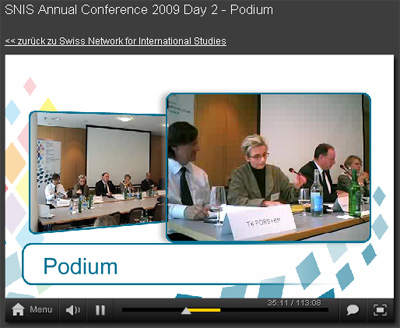 The CSS Expert Community “Crisis and Risk Network” (CRN) has just released a new report on strategies and policies in the field of Cybersecurity. Based on the cybersecurity strategies of the US, the UK, NATO and other actors, the paper explores what cybersecurity actually means, puts forward possible responses to the perceived threats and discusses that with a focus on the Swiss situation. The authors argue that the underlying problem to cybersecurity policies is that it remains unclear what is threatened, who is threatening, and what the potential consequences of cyberattacks could be.
The CSS Expert Community “Crisis and Risk Network” (CRN) has just released a new report on strategies and policies in the field of Cybersecurity. Based on the cybersecurity strategies of the US, the UK, NATO and other actors, the paper explores what cybersecurity actually means, puts forward possible responses to the perceived threats and discusses that with a focus on the Swiss situation. The authors argue that the underlying problem to cybersecurity policies is that it remains unclear what is threatened, who is threatening, and what the potential consequences of cyberattacks could be.
The paper can be downloaded here.





